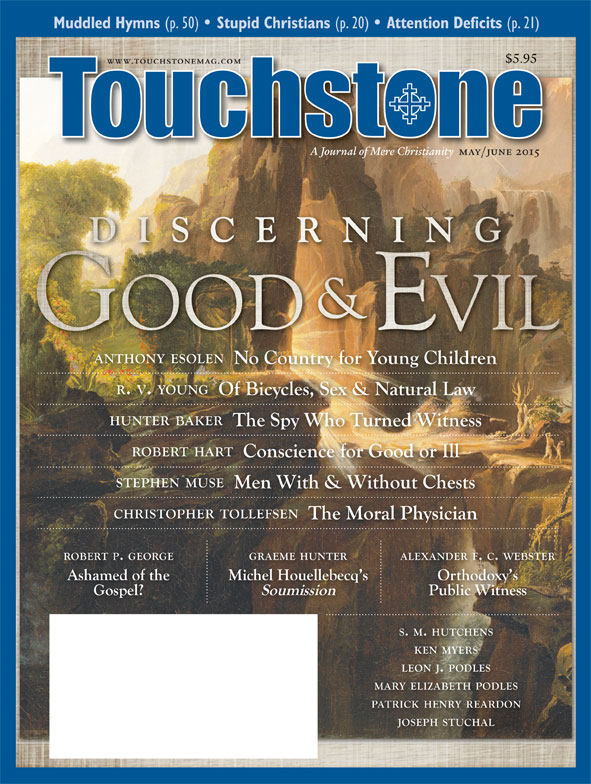View
Dumb Sheep
James S. Spiegel on the Truth About a Slanderous Accusation
It is common to hear people complain about "stupid" Christians. Some suggest, in less crass terms, that religious people, and Christians in particular, tend to be less intelligent than unbelievers. A recent meta-study by Miron Zuckerman, Jordan Silberman, and Judith A. Hall in the Personality and Social Psychology Review appears to confirm this impression. According to their analysis, there is a "significant negative association between intelligence and religiosity."
Naturally, Christians have been concerned to rebut this claim, and the blogosphere has been rife with critical responses. For example, on the blog Black, White and Gray, sociologist George Yancey argues on the basis of his own data that the irreligious are no more rational than Christians regarding their own beliefs. Consequently, he recommends that we be "skeptical of claims that Christians, and other religious individuals, are intellectually inferior to those who are not religious." I appreciate Yancey's efforts, and I, too, think such claims are dubious.
But what if there is something to the accusation? What if the Christian community really is, on the whole, less intelligent than unbelievers? What follows from that? Would it constitute evidence that something is seriously wrong with the Church and with Christianity as a religion?
Presumably, those who make such claims want us to think so. But I don't think that follows. In fact, I believe it is possible that the opposite is true, that the presence of people of low intelligence in the Church, even in disproportionately high numbers, is actually a good sign. I want to suggest that, ironically, all of these stupid—or perhaps I should say intellectually challenged—people in the Church just might confirm the truth of Christianity. Sound crazy? Or even stupid? Well, let's see.

Intellectual Impoverishment
We can begin by considering a crucial component of the gospel message, which is that the grace and mercy of Christ are not just for the healthy, wealthy, and talented, but also, or even especially, for the poor and downcast. As we know, Jesus spent much of his ministry healing the sick and ministering to the poor. His apostles followed suit, always emphasizing this as a core aspect of their ministry (see Acts 24:17; Rom. 15:26; Gal. 2:10; James 2:3–6). The Old Testament, as well, repeatedly declares God's special concern for the troubled, oppressed, and powerless (see, for example, Exod. 22:21–27; Psalms 12:5; 46:1; 140:12; 146:7–9; and Isaiah 3:14–15; 25:4). God's special concern for such people is a strong and recurrent theme in Scripture.
Of course, this teaching is comforting to the sorts of folks to whom it refers. And it is important to note that this theme has a predictable psychological effect on such people. Specifically, we should expect that, given the biblical promise that "God comforts the downcast" (2 Cor. 7:6), those who are weak, troubled, or impoverished will naturally be more inclined to put their faith in the Lord than those who are not.
There are, of course, many ways to be poor or downcast. In addition to economic or material poverty, a person can be impoverished relationally or socially, lacking friends or adequate community support. Or he can be psychologically or emotionally impoverished, being afflicted with mental health problems. And a person can be physically impoverished, suffering deficiencies in bodily health or nutrition.
Yet another form of impoverishment is intellectual, where a person suffers a significant lack of knowledge or rational capacity. Some people are in this condition because of neurological trauma or a mental disorder. Others are simply less intelligent, due to their genetic endowment, poor education, or both.
And just as people who are impoverished in those other ways are sometimes made the butt of jokes or tagged with demeaning labels such as "bum," "cripple," or "psycho," so people who are intellectually challenged are often made fun of or put down with terms like "moron," "idiot," and, of course, "stupid."
The point is that to have intellectual or cognitive deficiencies is to suffer a sort of impoverishment, to be poor or downcast in a certain significant way. And this, of course, is a sad state of affairs. But to those so affected, the gospel concept of God being close to the downcast applies every bit as much as it applies to those who are materially, psychologically, or socially impoverished. We should not be surprised, then, to observe that those who suffer such cognitive handicaps are more inclined to draw near to God than are the brighter folks among us. For, again, God draws near to them.
The upshot is that, just as those other poor and downcast people more readily embrace the gospel, so the intellectually poor are more ready to embrace it. And just as the Church's embrace of the physically handicapped is appropriate and good, it is likewise appropriate and good for the Church to welcome the cognitively handicapped. This being so, Christians need not be embarrassed or scandalized by the intellectually challenged in their midst. Rather, their presence is to be expected, given the gospel message of God's loving care and special mercy to the poor and downcast. We might even go so far as to say that in embracing the intellectually feeble, the Church is proving faithful to its calling to minister to the poor—that is, assuming the Church is also committed to alleviating the problem by helping people overcome their intellectual handicaps.
Intellectual Ministers
Now here we might have a point of contention. For one might object that all of this amounts to excuse-making and a justification for intellectual complacency in the Church. But why should it? Consider again the analogy to other kinds of impoverishment. Despite our belief that sickness and death are inevitable in this world, the Church has led the way in ministering to the sick and dying. And although Jesus has assured us that "the poor will always be among you," the Church has also led the way in ministering to the poor. So if welcoming the sick and the poor has not deterred the Church from trying to alleviate their problems and even cure them when possible, then why should it be assumed that welcoming the intellectually challenged will deter the Church from trying to rectify their condition as well?
In any case, the facts of history clearly enough dispel this concern. Christian intellectual ministry, from ancient to contemporary times, is unparalleled, as evidenced by the many great centers of learning that were founded by the Church. And today, thousands of Christian colleges continue to flourish around the world. As a Christian college professor myself, I am one such intellectual minister. And countless others like me take this calling just as seriously as do our brothers and sisters who work to address physical, psychological, and economic needs.
All of this should cast a different light on the question of intellectual weakness in the Church. So the next time you encounter someone playing the "stupid Christians" card, you might ask him to consider whether this helps or hurts his cause. For what at first blush looks like a powerful criticism of Christianity might turn out to be another point in its favor. Indeed, it may be one more illustration of the Apostle Paul's observation that:
God chose the foolish things of the world to shame the wise; God chose the weak things of the world to shame the strong. God chose the lowly things of this world and the despised things—and the things that are not—to nullify the things that are, so that no one may boast before him. (1 Cor. 1:27–29) •
subscription options
Order
Print/Online Subscription

Get six issues (one year) of Touchstone PLUS full online access including pdf downloads for only $39.95. That's only $3.34 per month!
Order
Online Only
Subscription

Get a one-year full-access subscription to the Touchstone online archives for only $19.95. That's only $1.66 per month!
bulk subscriptions
Order Touchstone subscriptions in bulk and save $10 per sub! Each subscription includes 6 issues of Touchstone plus full online access to touchstonemag.com—including archives, videos, and pdf downloads of recent issues for only $29.95 each! Great for churches or study groups.
Transactions will be processed on a secure server.
more on Christianity from the online archives
more from the online archives
calling all readers
Please Donate
"There are magazines worth reading but few worth saving . . . Touchstone is just such a magazine."
—Alice von Hildebrand
"Here we do not concede one square millimeter of territory to falsehood, folly, contemporary sentimentality, or fashion. We speak the truth, and let God be our judge. . . . Touchstone is the one committedly Christian conservative journal."
—Anthony Esolen, Touchstone senior editor














